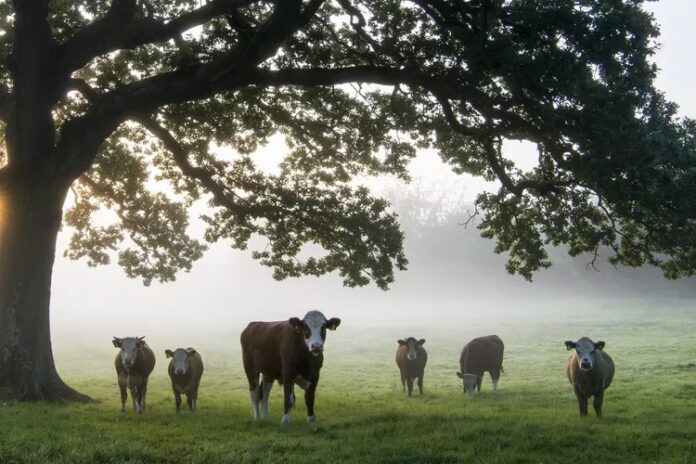Ever wondered what Regenerative Agriculture is all about? A recent document, written by Prof. Dr. André Leu, sheds light on the key principles and importance of Regenerative Agriculture.
So, what is Regenerative Agriculture? It’s a holistic approach that aims to make farming not just about crops but about healing the planet. Regenerative systems, as defined by Regeneration International, focus on improving the environment, soil, plant life, animal welfare, health, and communities.
The opposite: Degenerative Practices are the no-nos in agriculture because they harm the environment, soil, health, genes, and communities. Think synthetic pesticides, exploitative marketing, and destructive tillage systems – not the kind of practices we want.
Regeneration International insists that for our planet to heal, all agricultural systems should be regenerative, organic, and rooted in agroecology. The problem is that different organizations have different definitions of regenerative agriculture. They’re mostly on the same page but just like in the world of organic agriculture multiple definitions coexist.
Andre highlights the snags in global organic standards, pointing out disparities like antibiotic use in animals and varying pesticide residue levels. He also introduces the idea of Participatory Guarantee Systems (PGS), a more affordable certification method for small farmers, frowned upon by major markets.
The document suggests focusing on the Four Principles of Organic Agriculture – Health, Ecology, Fairness, and Care – to figure out if practices are regenerative or degenerative. It’s like a cheat code for sustainable farming!
Why should we care about Regenerative Agriculture? Well, most of us depend on agriculture in some way. Andre’s document points out that despite being crucial, farmers often face exploitation, food insecurity, and lack of education.
Industrial agriculture, with its hefty environmental toll, is a big player in climate change and environmental degradation. Regenerative Agriculture – a much smaller player – is a superhero that not only benefits the environment but also tackles societal, economic, and cultural challenges.
The soil takes center stage as the unsung hero, teeming with life. Practices that increase Soil Organic Matter (SOM) not only boost fertility but also help fight climate change by soaking up carbon dioxide. It’s like a win-win for the planet and us!
But Regenerative Agriculture isn’t just about farming. It’s a solution to a bunch of crises – climate, migration, biodiversity, health, food, gender, and media. Dr. Vandana Shiva even calls it the answer to democracy’s crisis!
In a nutshell, Andre urges us to ditch the old, degenerated system and embrace a new, regenerative one. We’ve got enough resources for everyone; it’s just a matter of changing our ways. The call to action is clear – let’s be the change-makers in a mighty Regeneration Movement. Ronnie Cummins, who was one of the founders of Regenerative International, reminds us, “The time to begin is now.”
So, Regenerative Agriculture is not just about farming; it’s about reshaping our world for the better. So if you are farming – farm regeneratively and if you are a consumer ask questions
Original document by André Leu, International Director for Regeneration International can be found here: https://regenerationinternational.org/2023/12/22/the-definition-of-regenerative-agriculture/
